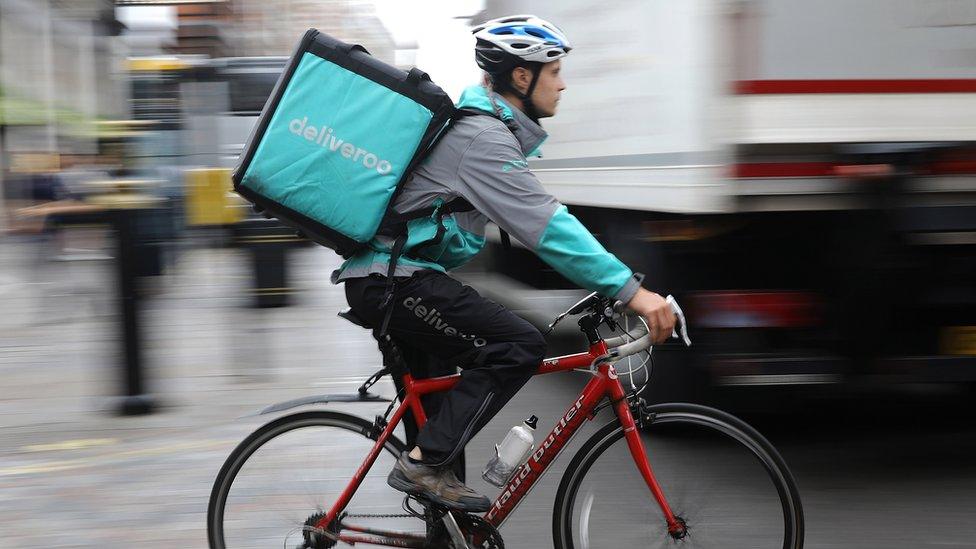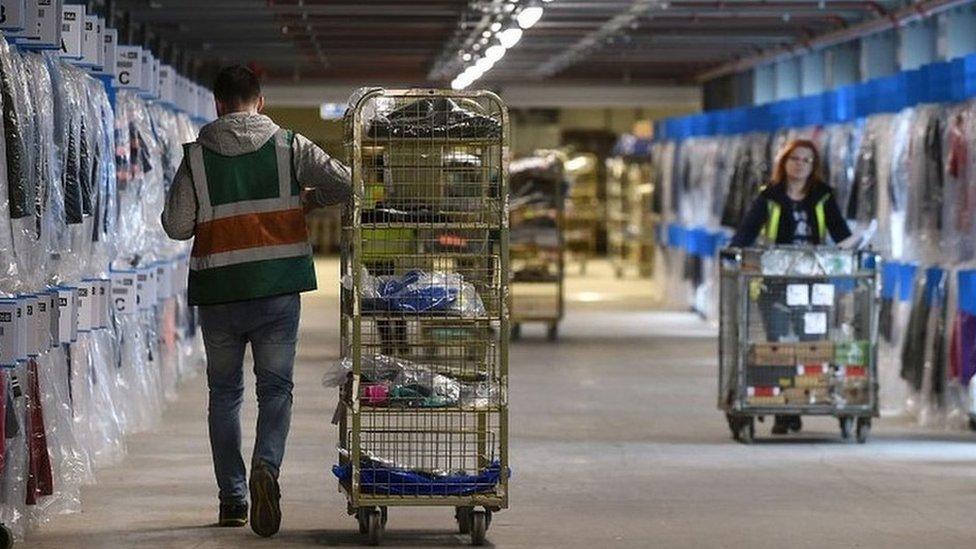Deliveroo wins latest court battle over rider rights
- Published

Riders hired by food courier Deliveroo are not entitled to collective bargaining, the High Court has ruled.
The ruling confirmed a previous judgement by labour law body the Central Arbitration Committee (CAC).
The Independent Workers Union of Great Britain was attempting to overturn the verdict, reached in November last year, that the riders are self-employed.
However, the court rejected claims that this categorisation breached their human rights.
Decisions by the CAC can be challenged in the High Court on a point of law, but the application for a judicial review was rejected.
Mr Justice Supperstone said Deliveroo riders were not "in an employment relationship" with the firm, so the right to collective bargaining did not apply.
Gig economy: Does flexible working come at a cost?
The case follows a number of claims brought by workers in the "gig" economy demanding rights such as holiday pay, the minimum wage and pensions contributions.
The IWGB said it would appeal against the latest ruling, saying that a majority of Deliveroo riders wanted workers' rights and union recognition.
Its general secretary, Jason Moyer-Lee, said: "Today's judgment is a terrible one, not just in terms of what it means for low-paid Deliveroo riders, but also in terms of understanding the European Convention on Human Rights.
"Deliveroo riders should be entitled to basic worker rights, as well as to the ability to be represented by trade unions to negotiate pay and terms and conditions."
But Deliveroo's UK managing director, Dan Warne, hailed the outcome, calling it "a victory for riders who have consistently told us the flexibility to choose when and where they work, which comes with self-employment, is their number one reason for riding with Deliveroo".
Related topics
- Published27 November 2018

- Published11 September 2018

- Published14 November 2017

- Published7 July 2017